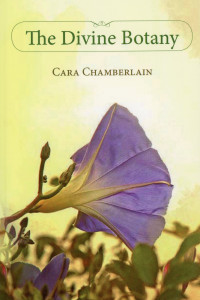
What a complex, faceted realm plants inhabit – a universe, really, of its own. Billings poet Cara Chamberlain traces the roots, vines, leaves and flowers of the botanical world in a collection that’s as intricate and redolent as its subjects.
She somewhat loosely follows the lead of Dante’s The Divine Comedy, but in this version, a chloroplast travels from the Inferno (“Marsh of Ruined Souls, “Gates of Hell,” “Limbo”), through Purgatorio, rife with spiritual perils (sloth, wrath, gluttony, spiritual indifference and the like), to Paradiso, culminating in “Vision of God or, The Chloroplast Achieves Enlightenment.” Each section is punctuated with ironic “Notes,” offering scholarly interpretation and, in some cases, the history of plants and terminology from a chloroplast’s perspective.
The poems comprise a connected journey, and not an easy one. Yet the elegant layers, like a forest’s floor, describe a rich, nimble intellect, a poet who seems like the “alchemist/ oxygen-maker” herself. Each page delivers riveting, luxuriant language: “Where the moon charades/ as blemish or scar/ above the grocery of insomniacs …”
“Did you think flowers were merely pretty? Think again. Worlds – human and non-human – collide in these poems and transfix,” writes Marianne Boruch, author of The Book of Hours.
Chamberlain’s poems have been published in such journals as Boston Review, Tar River Poetry, Passages North and The Southern Review. Her previous collection is Hidden Things.
– Kristi Niemeyer